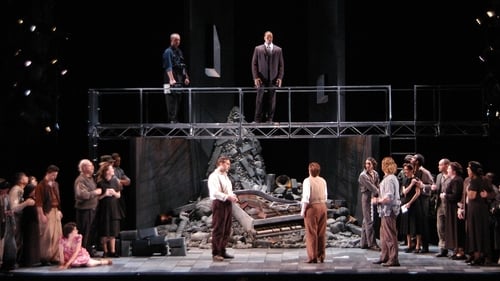
With her husband apparently drowned at sea, a scheming empress secures the throne for her son from another marriage. But the commander of the army has other ideas, and then the emperor returns, very much alive. Drottningholm Palace Theatre (Drottningholms slottsteater in Swedish), located at Drottningholm Palace in Stockholm, is one of the few 18th century theatres in Europe that is still used as a theatre with original stage machinery. The beautiful rococo backdrop is the starting point for this production of Agrippina. The Italian conductor and harpsichordist Francesco Corti, a regular collaborator of the orchestras Les Musiciens du Louvre and Il Pomo d'Oro, presides over Handel’s music which is bursting with originality and fun, as well as carefully considered moments of great beauty.

Ercole
Francesco Cavalli, a natural successor to Monteverdi, was the most famous and influential Italian opera composer during the mid-17th century. Cardinal Mazarin, chief minister to the king, commissioned Cavalli to create a Parisian spectacle to celebrate the wedding of the ‘Sun King’ Louis XIV and the Infanta of Spain. Ercole amante (‘Hercules in Love’) was the flattering subject chosen for this regal extravaganza combining larger-than-life characters with mythology, and genuine human emotions with natural and cosmic phenomena. The result is a sumptuous Baroque spectacle, conceived on a vast scale in this lavish production by directors Valerie Lesort and Christian Hecq.

Leporello
Considered by some to be the greatest opera ever written, Don Giovanni was the second product of an incredibly fruitful collaboration between two geniuses: the legendary W.A. Mozart and the talented Italian librettist Lorenzo da Ponte. Based on Molière's Don Juan, the two-act dramma giocoso premiered in October 1787 at Prague's state theater to rave reviews. The 2017 Festival d'Aix-en-Provence brought Mozart's fabulously devious work to the stage once more in a production by stage director Jean-François Sivadie. Starring Philippe Sly (Don Giovanni), Nahuel di Pierro (Leporello), and Eleonora Buratto (Donna Anna), the excellent performance featured the acclaimed maestro Jérémie Rhorer at the head of the period instrument ensemble Le Cercle de l'Harmonie.

Teucer
At the Grand Théâtre de Bordeaux, Raphaël Pichon conducts a new production of Rameau's opera Dardanus, with the ensemble Pygmalion, in a staging by Michel Fau and a choreography by Christopher Williams.

Le Bret
While best known today for having composed the ending to Puccini's unfinished Turandot, Franco Alfano wrote some dozen operas, including Cyrano de Bergerac (1936) with a libretto by Henri Cain based on Edmond Rostand's drama of the same name. It is a moving tale of romantic misunderstanding, swashbuckling bravado and heartbreaking loyalty, in which the eloquent Cyrano feels unable to express his love for Roxane because of his famously protuberant nose except on behalf of his handsome but inarticulate friend, Christian.

Second Prisoner
Two years prior to the opening scene, the nobleman Florestan has exposed or attempted to expose certain crimes of the nobleman Pizarro. In revenge, Pizarro has secretly imprisoned Florestan in the prison over which Pizarro is governor. The jailer of the prison, Rocco, has a daughter, Marzelline, and a servant (or assistant), Jaquino. Florestan's wife, Leonore, came to Rocco's door dressed as a boy seeking employment, and Rocco hired her. On orders, Rocco has been giving Florestan diminishing rations until he is nearly starved to death. Place: A Spanish state prison, a few miles from Seville Time: Late 18th century





